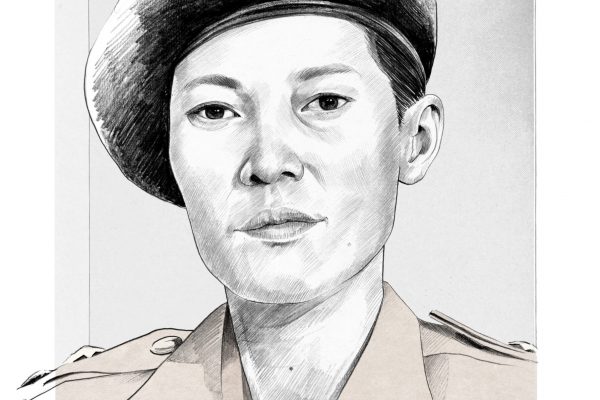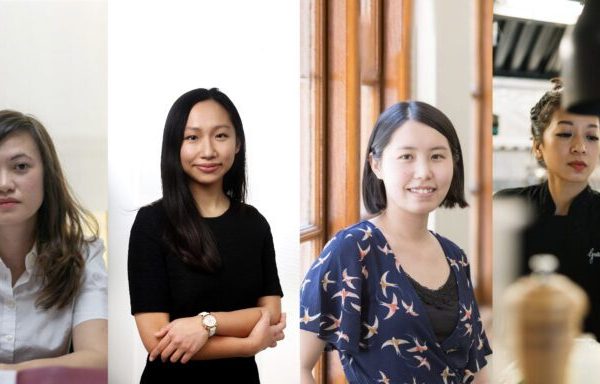Meet the volunteers leading COVID-19 relief efforts in the Philippines, US and UK
The prolonged quarantine and economic standstill caused by the novel coronavirus pandemic have amplified problems such as poverty, unemployment, food scarcity and mental health issues.
But volunteers around the world have harnessed their personal expertise, technology and the power of community to organise ambitious relief projects.
We spoke with volunteers in the Philippines, UK and US to learn more about their efforts.
A new lifeline in Cebu
COVID-19 Latest: 12,513 confirmed cases; 824 deaths as of 18 May 2020
Ever since The Philippines implemented a community quarantine (which includes stay-at-home orders and restrictions on transportation) in March to prevent the spread of the new coronavirus, the country’s economy has effectively ground to a halt.
According to statistics released by the country’s Labor Department, over 1 million workers had lost their jobs as of 1 April.
Worried about the newly unemployed, IT expert Albert Padin founded the Rice Movement that same month. Based in Cebu City, a coastal city in the central Philippines, the initiative delivers rice – a staple food for many Filipinos – to those in need.
Ariana spoke to Rachel Lenli Tuhoy, an organiser of the Rice Movement, to learn more about the project and what they have achieved so far:
“I work with Albert at a software development company in Cebu City. In early April, Albert contacted us [a group of coworkers] through social media. He was crying, as he had just lost his father to COVID-19.
“A few days later, he got in touch again. This time, Albert wanted to figure out a way that we could help families in need. We thought about distributing food packages, but it was too complicated in terms of preparation and logistics. Then we thought: How about rice?
In the Philippines, we always say: ‘As long as we have rice, we will survive.’
Rachel Lenli Tuhoy
“We quickly set up a website and Facebook page, so people could donate money to sponsor rice purchases and deliveries.
“We have about 20 volunteers, including myself, who handle everything from applications to deliveries.
“Those who applied to receive rice have shared their stories with us online. One of them wrote:
‘I lost my wife to the COVID-19 virus and already spent a lot of money – around PHP50,000 (roughly US$1,000) – on her hospital bills and cremation. I also lost my job as a salesman and still have three children to support.’
Another applicant wrote: ‘We won’t die of the virus, but we will die of hunger.’”
“Thanks to the donations, we are able to deliver 10 kilogrammes of rice per beneficiary or 50kg for a family of five, which should last about two to three months.
“As of 18 May, we have already delivered 574 sacks of rice to more than 2,190 family members of displaced workers.”
Honking for good in Virginia
COVID-19 Latest: 1,527,664 confirmed cases; 90,978 deaths as of 18 May 2020
When some states in the US began closing schools in mid-March, many lower-income families worried about how to feed their children.
Up until that point, they had relied on free lunches provided by schools for at least one meal per day, funded by the National School Lunch Program, a federally assisted meal programme.
Fortunately, charities like Mobile Hope, a Virginia-based non-profit association are working to ensure children have food, clothing and other necessities.
Founded by Donna Fortier in 2011, Mobile Hope usually focuses on helping the homeless population in Loudoun County, Virginia, where roughly 3 per cent of the area’s 400,000 people live at or below the federal poverty level.
In light of the pandemic, Fortier set up Listen For The Honk in collaboration with local schools. Through this initiative, volunteers ride school buses along the usual routes to distribute food and goods to underprivileged students. We spoke with Fortier about the situation so far:
“Our mission is to distribute food (including rice, fruit and tuna fish), clothes and hygiene products (such as hand sanitisers and facemasks), to struggling families in the community.
“We currently operate the bus route two days a week, stopping at 19 different locations, including local schools, parks and shopping centres.
“When we arrive at each stop, we honk the horn to let people know they could come outside and collect food and necessities. That’s how Listen For The Honk got its name.
“We have seen as many as 300 to 400 people lining up for donation bags at each stop. As of 8 May, we have served over 33,600 people and distributed more than 9,206 bags of food and hygiene products.
“Many of these parents were already struggling before the outbreak, working three or four jobs. Now, many have lost their jobs and can’t pay rent or fill up their gas tank. That really worries them.
“We try to alleviate their fears by listening and telling them that we are all in it together. No one knows what’s going to happen, but it’s important for people to reach out for help if they need it.
“As for the children, we give them books and stuffed animals. There have been several kids who broke down and cried because they were so happy.”
“While operating the bus routes, we have also noticed an increase in homeless young people who have lost their jobs and have no place to go. The shelters where they used to stay are now closed due to safety measures.
“We help them look for housing and put them up in a hotel temporarily, so that they have a place to rest, take shower and take care of themselves.”
Virtual therapy in the UK
COVID-19 Latest: 243,695 confirmed cases; 34,636 deaths as of 18 May 2020
In March, the UK government ordered people to work from home, avoid public transit, and minimise contact with others outside their households.
A recent study published in April by online health-science journal MedRxiv found that 69 per cent of the 600 adults surveyed felt more isolated than usual during the lockdown. They also reported higher levels of anxiety, depression and lower levels of well-being.
To provide support, psychotherapist Ruth Chaloner founded Help Hub, an online therapy service that offers free, 20-minute-long online emotional support sessions.
Though originally focused on her own community in West Oxfordshire county, in southeast England, the initiative was so popular that Chaloner expanded. Now anyone in the UK who is over 18 years old can access free emotional support online.
It’s common for people to feel trapped and scared. Many are also grieving because they have lost a loved one and can’t be by their side. It is an awful situation.
Ruth Chaloner
Chaloner tells Ariana about Help Hub’s purpose and impact:
“I have personally been self-isolating for over 10 weeks because I have Lyme disease [an infectious disease that is usually caused by tick bites] and my immune system is compromised.
“During isolation, I realised that we could have a mental health crisis on our hands. Humans are naturally social pack animals – we are not good at being alone.
“Therapy in the UK can be expensive, so I wanted to create an alternative: a free online mental health clinic to help people who can’t afford it otherwise.
“In March, we set up a Facebook page, The Help Hub, to promote the service. We were able to quickly assemble 700 volunteer therapists across the country.
“Volunteers also got the word out locally by distributing leaflets in their neighbourhoods, then following up a few days later.
“We invited people to book an appointment online, where they could talk with one of our therapists via Skype, FaceTime or over the telephone.

